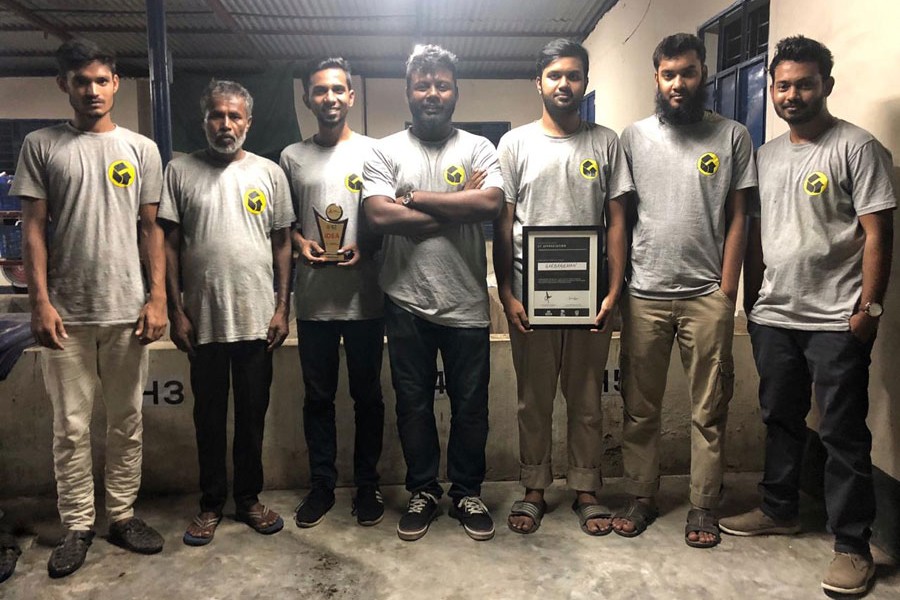
Published :
Updated :

By any measure, GARBAGEMAN is a maverick enterprise. It recycles waste into resources, a process known as upcycling, to save the environment.
Most people will grimace at the thought of running a business that involves daily dealing with filth and rubbish.
But Fahim Uddin, a 20-something architect, wasn't embarrassed turning his waste upcycling idea into a business last year.
Countless discussions on social and environmental problems take place at seminars and symposiums. But we hardly see any action-oriented initiatives to address these issues. Clinching victory at the 'Idea' project of Startup Bangladesh, Fahim didn't linger to put words into action.
"I'm being true to what I do, which is why I've named my company GARBAGEMAN', said an elated but unassuming Fahim at the Bangladesh Forum in the recently completed 9th Social Business Day in Bangkok.
Securing a small grant from Startup Bangladesh coupled with some personal investment, he based his startup on Social Business model, pioneered by Nobel Laureate Professor Muhammad Yunus. The guiding principle of this model is that a business has to solve any social problem. However, investors or owners cannot take profits earned from it past the break-even point. Rather, profits must be invested back into the business for its continuation and expansion.
Generation of too much waste is a health and environmental hazard that has been plaguing this city for far too long. Every day, for example, some 5,000 tonnes of rubbish is dumped in landfill sites under DNCC alone, which is equivalent to an area capable of accommodating approximately 27,000 people.
Such over capacious waste dumping pollutes air and water, putting human health at stake. Extreme waste dumping also creates an environmental hazard as methane generated from rubbish in landfill sites traps the sun's heat and warms up the atmosphere, thereby contributing to global warming. Research suggests that methane is 84 per cent more potent than carbon dioxide in jeopardising the climate, owing to how effectively it traps the sun's heat.
To address the health and environmental hazards, GARBAGEMAN segregates waste at source. It removes organic waste from rubbish, collected from hotels, restaurants and tea stalls, and recycles it into vermicompost at the company's Pilot Recycling Facility, thereby preventing waste from going to the landfills and stopping contamination of soil, air and water.
The inorganic wastes, such as paper, plastic and metal are sold to third-parties who then turn those into daily usable items. Through on-source segregation, GARBAGEMAN has saved over six tonnes of waste from ending up in the landfill sites under DNCC as of today.
Fahim has branded his vermicompost 'Regen'. The company earns revenue from its sales. According to him, buying one kilogram of vermicompost could potentially save three kilograms of waste from going to the landfills.
Recently, GARBAGEMAN has become affiliated with Delft University of Technology (TU Delft) - Netherlands's highest-ranking university. Under the programme, GARBAGEMAN has received DIY plastic recycling machines and getting other technical support from the university. TU Delft also aims to extend knowledge sharing by sending its students to the GARBAGEMAN's recycling facility.
With a team of eight executives and two workers, GARBAGEMAN is working towards creating a cleaner and greener Dhaka. It is also gravitating towards obtaining recognition of waste collection and management job as a formal profession. Thanks to the 'save the environment' goodwill with which GARBAGEMAN is moving forward, it's only a matter of time before it cements itself as a quintessential example of Social Business.


 For all latest news, follow The Financial Express Google News channel.
For all latest news, follow The Financial Express Google News channel.